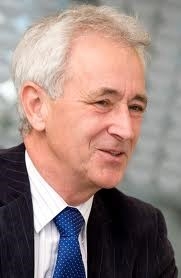HOW
MANY CARS CAN A CITY HAVE?
主讲人:Prof. dr. Henk van Zuylen

时间:2015年9月14日(周一)13:30-15:00
地点:交通运输工程学院103报告厅
主讲内容简介:
In the 1960s the grow of motor
vehicles was quickly growing in Europe. Congestion was emerging in cities and
on freeways. The authorities were building new road infrastructure and traffic
management was improved and extended. Still there was a question whether there
were limits to the growth: how much car ownership was possible without letting
the roads of a city silt with queuing cars.
Professor Smeed developed a
model to solve this question. He presented it as his inaugural address in 1967.
The model is still well applicable: it has been applied for Changsha city and
gave a consistent estimate for the maximum number of cars that could be owned
and used in the city without creating too much congestion in the peak hours
(1.2 million cars).
Nowadays there is more attention
for another approach to estimate the capacity of a road network: the
Macroscopic Fundamental Diagram. It gives a relation between the average
traffic flow and the average traffic density in a network. The more traffic in
the network, the higher the flows are, up to a point that congestion emerges
and the traffic flow decreases due to spill back and grid lock.
In the presentation both
approaches will be discussed and the relation between them will be explained.
主讲人简介:
Henk van Zuylen is emeritus
professor in the faculty of Civil Engineering and Geosciences at the Delft
University of Technology. He is visiting professor at Tongji University
(Shanghai), the Research Institute of Highway (Beijing), Hunan University
(Changsha), and Changsha University of Science and Technology. He is director
of the Chinese-Netherlands ITS training center and the consultancy company vZC.
He participated in the FANTASIE project
executed for the European Commission to identify and assess new technologies
for transport. He also participates in the European research program EDICT, in
which the potential of new systems for public transport for European cities are
assessed. Henk van Zuylen executed several studies in China, e.g. for Shanghai
and Beijing to find ways to reduce congestion on the ring roads, for Changsha
the assessment of the SCATS traffic control system, for Chengdu for the
development of a training system for emergency management.
主要研究方向:
Henk van Zuylen’s main research
interests are: dynamic traffic management, network reliability, traffic
monitoring systems, travelers’ behavior in response to traffic measures,
technology assessment and innovation processes, and interactive and creative
planning processes.
欢迎各位老师、同学积极参加同路人学术论坛!
交通运输工程学院研究生会
交通运输工程学院青年教师沙龙